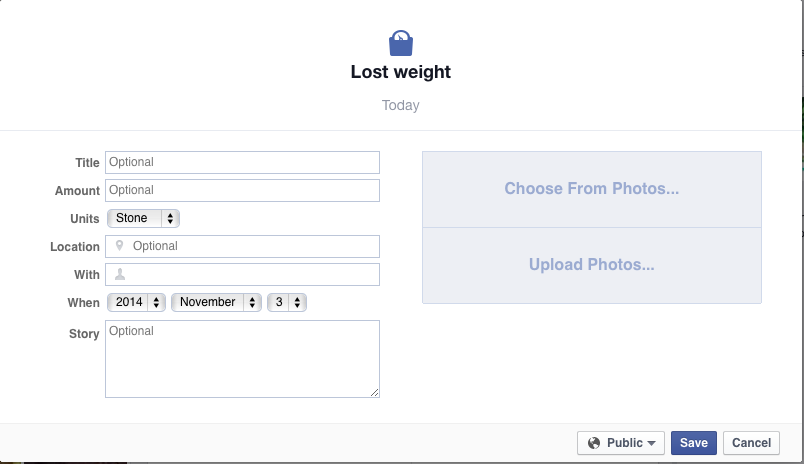For the past few weeks, our ASTU class have been working really hard on our literature review assignment, which I chose to look at the construction and presentation of identities in the blogging world. I concluded that blogs provide space for personal reflection and validation, but the mediated culture in which mass media emerge from could lead to the misrepresentation in personal identities. In the blog post, I am going to talk about this idea in the context of social networking sites, and in particular, Facebook, as I didn’t get the chance to put it in my paper.
Facebook.com is one of the (if not, probably the) most popular social networking sites. In our ASTU lecture a few weeks ago, we discussed Facebook as a form of life narrative, and Dr. McNeill accurately described Facebook as a ‘complex shaper of contemporary identities’. Facebook users have total control over how they want to be represented online, by filling in the personal profile, liking pages, and uploading photos and videos. They can also adjust their privacy settings to decide who can see their content. Self-identity on Facebook is highly constructed and controlled by users. We want to present our online identity as accurate as possible to our physical selves, while leaving out flaws that others may disapprove.

Are we defined and controlled by Facebook?
However, Facebook, the software itself, has a significant influence in the construction and presentations of identities. Facebook users profile is actually structured and designed in a way to promote particular social values and corporate interests. For instance, there are only two options: ‘Male’ and ‘Female’ in the Gender section. This makes it difficult for users who may not identify themselves with either of these options. This not only limits the opportunity to present an accurate sense of self, but also implicitly promote certain social norms and values. Furthermore, the life event section on Facebook offers users to add experiences to the timeline. The ‘weight loss’ section in one of the life events categories ‘Health and wellbeing’, shows that Facebook promotes society’s expectation of body image. I agree that this could be empowering to some users, however, it could also be harmful to the self-image of some users. Our online identities are shaped and defined by Facebook, and our real, physical identities are destructed and dismantled by Facebook.
Work cited:
http://anthrocyber.blogspot.ca/2009/05/identity-construction-and-self.html
http://www.refinery29.com/2014/06/69401/facebook-weight-loss-feature
Images from:
http://i2.mirror.co.uk/incoming/article676858.ece/alternates/s2197/Topic%20-%20Facebook
http://blogs.kqed.org/education/files/2011/06/facebook_blank_face3.jpeg
